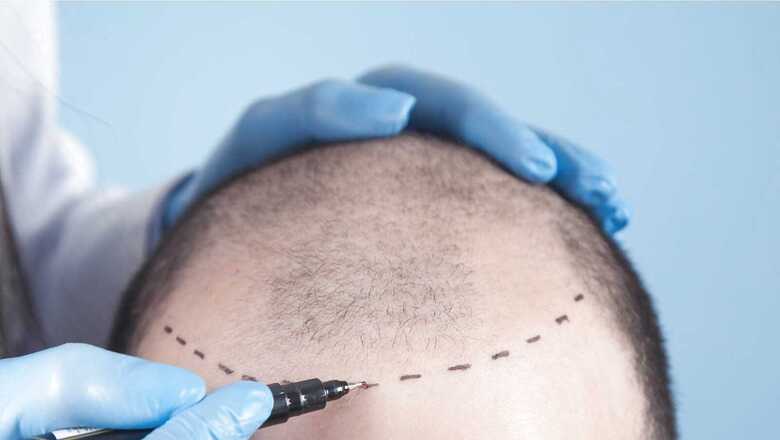
views
Hair fall is a common problem. Many people suffer patchy hair and spot baldness, which can lead to a drop in self-esteem and confidence. While there are several products that claim regrowth of hair but there is no solid evidence for their backup. However, hair transplantation is a surgical process that is the most successful way to get your hair back and treat spot baldness. It has a very low risk of failure and practically no side effects when performed by a trained specialist or dermatologist. Here are certain things that one must know before proceeding with this process.
It’s a surgical process: Hair transplantation is a surgical procedure in which follicles and roots from a part of your head are removed and transplanted to the bald area. The process is non-invasive and takes only a few hours to complete. This method is also applicable to other areas of the body, such as your browse, eyelashes, and even your pubic region.
The transplanted hair is similar to natural hair: Once the transplanted hair begins to grow, it can be treated like normal hair. It can be shampooed and washed similar to natural hair. No special care is required for transplanted hair.
Hair transplantation does not guarantee dense hair: It must be known that hair regrowth differs from person to person. The hair transplant surgery result is determined by the amount of hair available in the donor area. Furthermore, a hair transplant does not guarantee a head full of dense hair.
The transplanted hair is permanent: More or less yes, transplanted hair is permanent as it continues to grow for a very long period of time, probably a lifetime. It won’t thin or fall off. Hair roots are extracted from the donor area (part of the scalp not affected with baldness), however, the most effective way is the bio-enhanced simultaneous transplantation technique.
Medication and aftercare: The transplanted hair is more or less permanent and hence no medication is required to retain this hair.
Read all the Latest Lifestyle News here




















Comments
0 comment